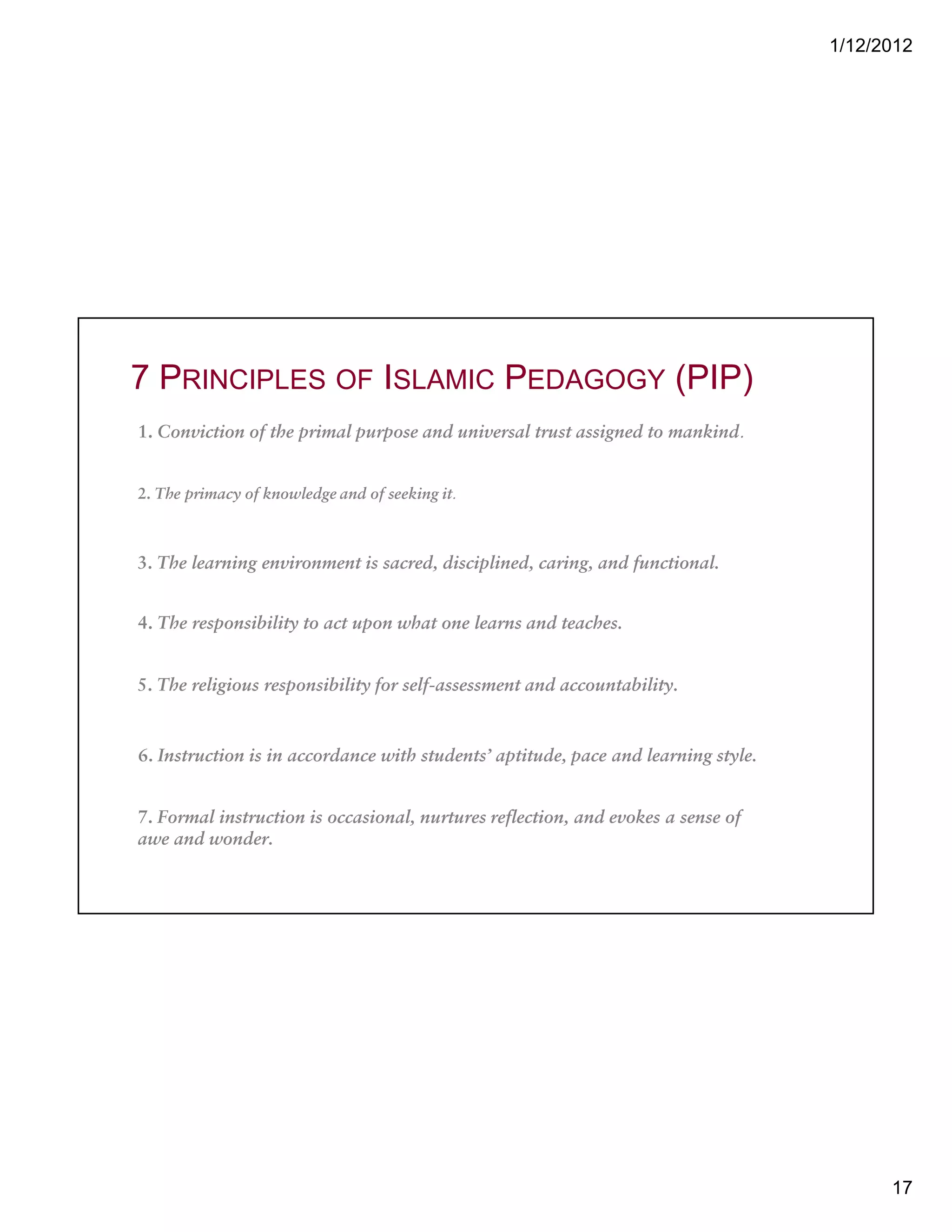The document outlines a workshop focused on Islamic pedagogy, aimed at conceptualizing identity and engagement in educational contexts. It emphasizes the need for effective teaching practices rooted in Islamic principles and discusses seven core principles of Islamic pedagogy to enhance student engagement and identity. The workshop includes brainstorming sessions, expert group discussions, and applications of Islamic pedagogical principles to create compelling learning environments.







































